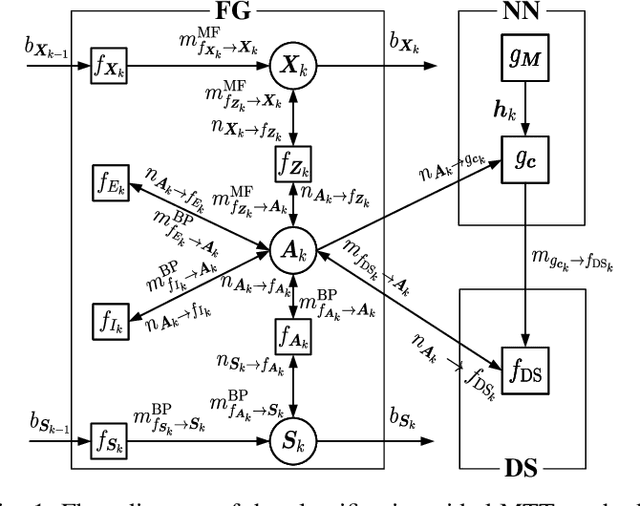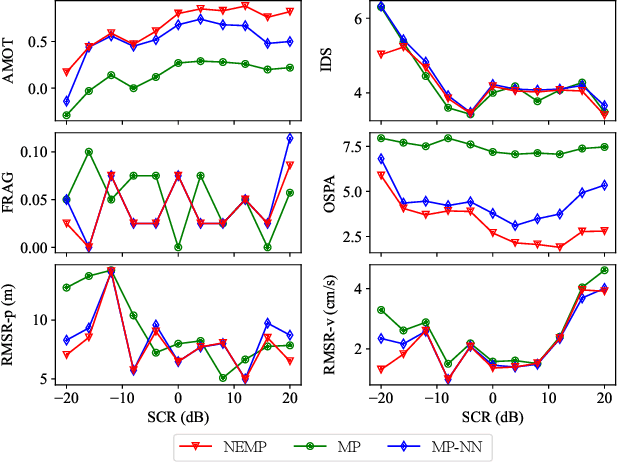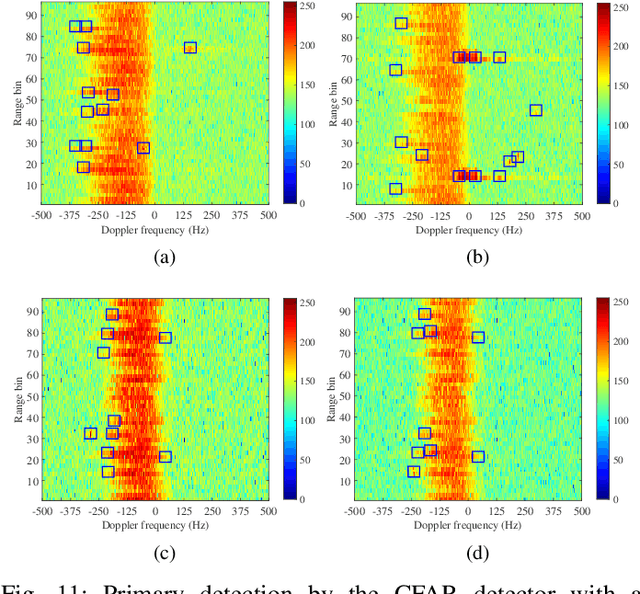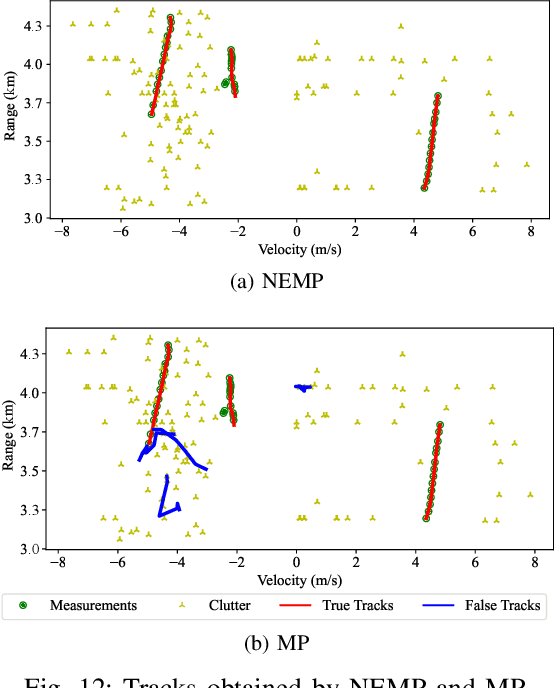Xianglong Bai
Classification-Aided Robust Multiple Target Tracking Using Neural Enhanced Message Passing
Oct 19, 2023



Abstract:We address the challenge of tracking an unknown number of targets in strong clutter environments using measurements from a radar sensor. Leveraging the range-Doppler spectra information, we identify the measurement classes, which serve as additional information to enhance clutter rejection and data association, thus bolstering the robustness of target tracking. We first introduce a novel neural enhanced message passing approach, where the beliefs obtained by the unified message passing are fed into the neural network as additional information. The output beliefs are then utilized to refine the original beliefs. Then, we propose a classification-aided robust multiple target tracking algorithm, employing the neural enhanced message passing technique. This algorithm is comprised of three modules: a message-passing module, a neural network module, and a Dempster-Shafer module. The message-passing module is used to represent the statistical model by the factor graph and infers target kinematic states, visibility states, and data associations based on the spatial measurement information. The neural network module is employed to extract features from range-Doppler spectra and derive beliefs on whether a measurement is target-generated or clutter-generated. The Dempster-Shafer module is used to fuse the beliefs obtained from both the factor graph and the neural network. As a result, our proposed algorithm adopts a model-and-data-driven framework, effectively enhancing clutter suppression and data association, leading to significant improvements in multiple target tracking performance. We validate the effectiveness of our approach using both simulated and real data scenarios, demonstrating its capability to handle challenging tracking scenarios in practical radar applications.
 Add to Chrome
Add to Chrome Add to Firefox
Add to Firefox Add to Edge
Add to Edge